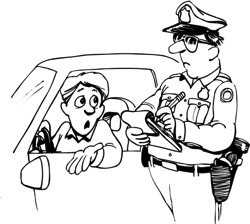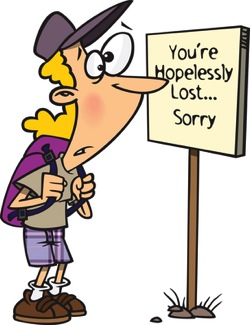Arguing
 The Grasshopper must have been channeling Aristotle over the weekend when he asked this: “Do you argue to win or to solve something?”
The Grasshopper must have been channeling Aristotle over the weekend when he asked this: “Do you argue to win or to solve something?”
You may have answered “both” to this question but the more emphasis you give to winning, the longer the life of the argument.
Winning is a mind based concept; solving something involves action past intellectually arguing who’s right. The longer you hold on to being right, the longer the argument will be, delaying any chance of solving the dilemma.
Like you, I’ve witnessed and have been involved in countless arguments that go nowhere. The need to win is the culprit. It blinds us to solutions. When our focus is on victory, we can’t get close to a solution with someone because we are so prickly.
The telltale sign of someone looking to win is when most of their effort is to make someone else wrong. That is pure petrol for keeping an argument going. Reminds me of two words I learned years ago: accurate and inaccurate.
I certainly knew these words but using them in an argument was a lesson well learned from the late Dr. Dave Dobson.
He claimed that it would be useful to update the words “right” and “wrong” in our vocabulary to “accurate” and “inaccurate.” The updated versions just don’t have the same emotional baggage. Try these sentences on for size and see how soon you’ll agree with Dave:
1. You’re wrong.
2. That’s an inaccurate statement.
“You’re wrong” sets up a polarity response of “I’m right” from another with a guarantee that this argument will go on into the night.
“That’s an inaccurate statement” puts the emphasis on accuracy and the statement, not the person.
Arguing, for the most part, gets bogged down in being right or not being wrong. When either of them is your focus, the argument will be long.
Start to notice where your focus is when you choose to argue. It will be a great predictor as to whether you’ll arrive at a solution or not.
Best as I can tell, some people just like to argue. I hope they have the good sense to become trial lawyers because outside the courtroom, arguing to win is a losing strategy.
All the best,
John
Be Sociable, Share!

 What little piece of creativity is itching to get out? That’s a question The Grasshopper asked this morning.
What little piece of creativity is itching to get out? That’s a question The Grasshopper asked this morning. I was attending a seminar 12 years ago when the seminar leader said something profound: “The way you do one thing is how you do everything.”
I was attending a seminar 12 years ago when the seminar leader said something profound: “The way you do one thing is how you do everything.” It seems to me there is a difference between effort and pursuit. I haven’t arrived at any conclusion yet but let me give it a little effort and pursue the topic.
It seems to me there is a difference between effort and pursuit. I haven’t arrived at any conclusion yet but let me give it a little effort and pursue the topic. There is a concept I learned many years ago that says, “Once you label it, you limit it.”
There is a concept I learned many years ago that says, “Once you label it, you limit it.” The Grasshopper added a new twist to a rosy old phrase when he offered this: “Limitations aren’t any sweeter when we justify them.”
The Grasshopper added a new twist to a rosy old phrase when he offered this: “Limitations aren’t any sweeter when we justify them.” One thing I love about The Grasshopper is his odd use of language, like this tidbit from the other day: “You can’t start from where you’re not.”
One thing I love about The Grasshopper is his odd use of language, like this tidbit from the other day: “You can’t start from where you’re not.” “The hallmark of an often angry person is justification.” That’s what The Grasshopper offered on a walk this past weekend.
“The hallmark of an often angry person is justification.” That’s what The Grasshopper offered on a walk this past weekend.